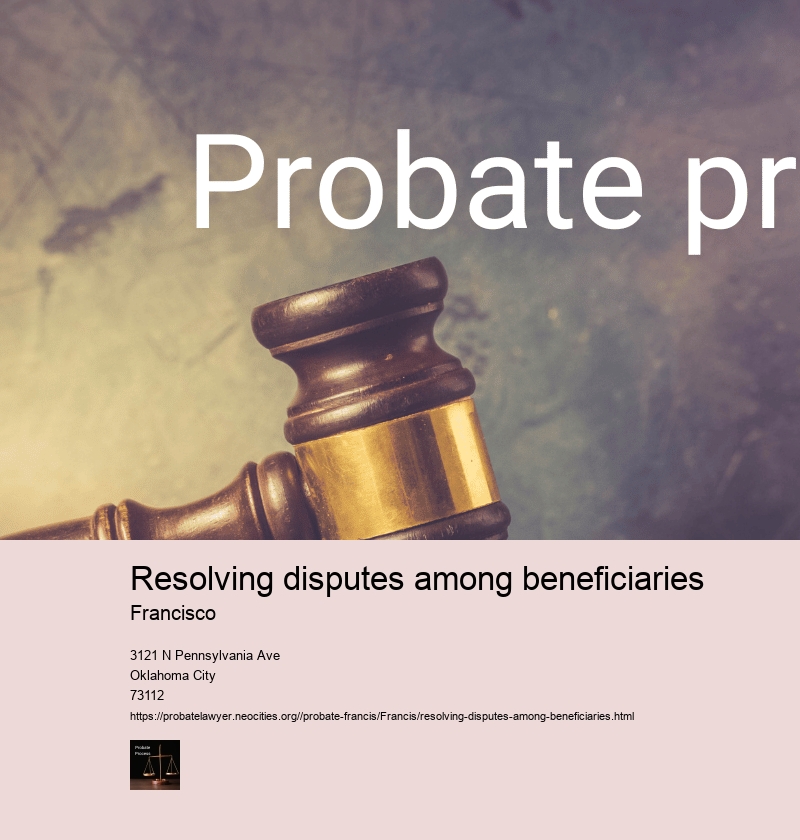Resolving disputes among beneficiaries
estate taxes
Resolving Disputes Among Beneficiaries: Navigating the Delicate Terrain of Estate Conflict
Disagreements among beneficiaries following the death of a loved one can be emotionally charged and complex. Probate Lawyer . When an individual passes away, their estate plan—be it a will, trust, or other arrangement—is intended to clearly outline how their assets should be distributed. Unfortunately, even with the most meticulous planning, disputes may arise that challenge not only the distribution of assets but also family relationships.
The reasons for such disputes are manifold; they might stem from perceived unfairness in asset allocation, differences in opinion on how an estate should be executed, or misunderstandings about the decedent's final wishes. In cases where no clear estate plan was outlined by the deceased, state laws usually dictate the distribution process which can further complicate matters when heirs have divergent expectations.
To navigate this delicate terrain and resolve conflicts among beneficiaries effectively, several strategies can be employed.
Resolving disputes among beneficiaries - living trust
- estate taxes
- last testament
- living trust
Secondly, mediation presents itself as a valuable tool. An impartial third-party mediator specialized in estate law can facilitate discussions between disputing parties to help them reach a mutually acceptable resolution without resorting to litigation. Mediation allows individuals to voice their concerns and work through emotional blockages in a structured environment that supports collaboration over confrontation.
Thirdly, seeking professional advice is crucial when emotions obstruct rational decision-making. Attorneys who specialize in probate and trust law can offer guidance on legal rights and obligations that pertain to each beneficiary. Additionally, these professionals may assist in interpreting any opaque language within wills or trusts that may be causing contention.
In scenarios where informal negotiation fails to yield results and legal intervention becomes necessary, arbitration might serve as another alternative before heading into court battles. Arbitration involves presenting the dispute before an arbitrator who makes binding decisions based on evidence and testimonies provided by all parties involved—similar to a court proceeding but usually quicker and less formal.
However, if no agreement can be reached through communication, mediation or arbitration then litigation might become unavoidable. This last resort sees beneficiaries taking their grievances before a judge who will adjudicate based on existing laws and evidence presented during trial proceedings—a route that often comes with high financial and emotional costs.
Regardless of which approach is taken to address beneficiary disputes it's important for those involved to keep sight of preserving familial ties whenever possible. living trust The aftermath of losing someone close is difficult enough without adding layers of intra-family conflict over material possessions or wealth distribution.
Finally understanding that compromise plays an essential role throughout this process cannot be overstressed; being willing to concede certain points could pave the way toward achieving peaceable settlements beneficial for all concerned rather than pursuing protracted adversarial battles which often leave deep rifts behind even after financial matters have been settled.
In conclusion while resolving disputes among beneficiaries requires navigating sensitive issues combining open lines of communication with appropriate professional assistance often leads towards finding equitable resolutions these challenging circumstances demand remain mindful though human relationships are ultimately more invaluable than any asset making every effort preserve them during times testamentary turmoil ought always take precedence above else

